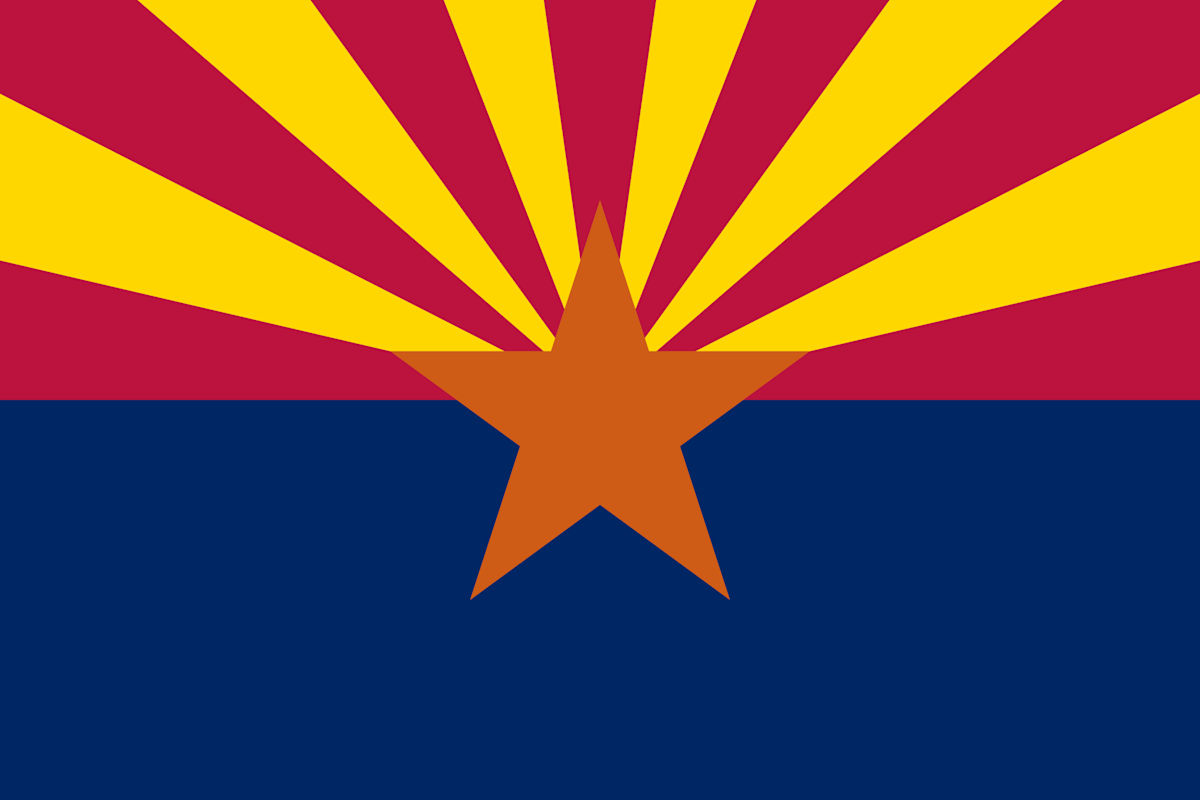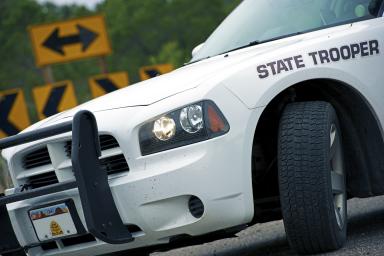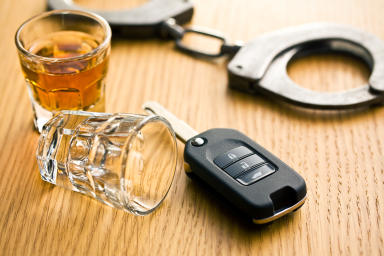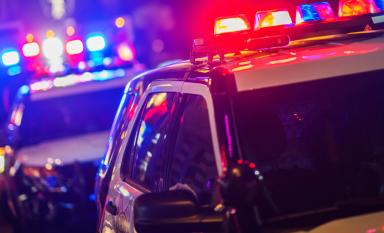Arizona DUI Laws

Many consider Arizona to have some of the toughest drunk driving laws in the United States. The prevalence of impaired driving explains these harsh penalties: in December of 2022 alone, Arizona saw over 800 drivers arrested for operating under the influence. In 2019, the state saw 261 drunk driving-related deaths, accounting for over a quarter of all traffic fatalities.
If you are one of the many people who have been injured by an impaired driver, you are likely thinking about a lawsuit. If you have been arrested for DUI, you probably want to know what penalties you could face. This page will provide an overview of how Arizona defines and punishes DUIs, how long you have to pursue charges, what type of settlement you can receive from a DUI injury lawsuit, and how to find a lawyer to represent you.
Defining DUI in Arizona
Arizona’s legal limit is .08% blood alcohol concentration and exceeding it by any amount can warrant a charge for driving under the influence, a Class 1 misdemeanor. However, there are several instances in which someone could be convicted of DUI with a BAC of .07% or lower.
The legal limit for operating a commercial vehicle, such as a tractor-trailer truck, is .04%. A driver younger than 21 can be arrested for DUI if a test shows any amount of alcohol in their blood. A driver 21 or older cannot be found guilty of DUI based on their BAC alone if it is lower than .08%, but the court can use a BAC of .05% or higher alongside other evidence to convict them.
A driver who is impaired by marijuana, cocaine, prescription medication, or any other psychoactive substance (a list can be found here) can also be charged with DUI even if there is no alcohol in their blood. However, only drivers convicted of driving under the influence of alcohol will have to install an ignition interlock device in their vehicle.
Anyone who witnesses drunk driving can report it by calling 9-1-1.
Arizona Extreme DUI Law
Arizona defines driving with a BAC of .15% or higher as “extreme DUI.” A BAC of .20% or higher is considered “super-extreme.” Extreme DUI charges are Class 1 misdemeanors like standard DUIs, but they carry harsher penalties, which are described more specifically in the section “What Are the Penalties For a DUI in Arizona?” below.
Arizona Aggravated DUI Laws
Arizona considers particularly reckless or negligent instances of impaired driving to constitute “aggravated DUI.” While standard and extreme DUIs are both class 1 misdemeanors, an aggravated DUI is either a Class 4 or Class 6 felony, depending on a few factors.
Some factors that might lead to an aggravated DUI conviction are:
If the driver was operating with a suspended license
If the driver’s vehicle is required to be equipped with an ignition interlock device
If a passenger younger than 15 was in the vehicle
If the driver was traveling in the wrong direction on a highway
If the driver has had two or more DUI charges in the previous 84 months
Reinstatement of Driver’s License After a DUI Arrest in Arizona
Anyone arrested for driving under the influence in Arizona will have their license suspended immediately, even if they are not ultimately convicted of a DUI. While there is no minimum length of suspension for a first-time offender, someone with a previous DUI conviction will have to wait 12 months before having their license reinstated.
To have their license reinstated after an arrest for DUI, an offender will have to submit a license reinstatement application, either online or in person, and application and reinstatement fees. If the arrest leads to a conviction, the offender will also have to provide proof of future financial responsibility and maintain that proof for three years. Insurance coverage is the most common form of proof, but a driver may choose instead to provide a $40,000 cash deposit.
Arizona Interlock Ignition Device Laws
After a conviction for driving under the influence in Arizona, a driver will have to install an interlock ignition device, or IID, in any vehicle they operate for at least a year after they become eligible for license reinstatement. An IID is a breathalyzer that prevents a driver from starting a vehicle if they have alcohol in their system. Arizona also requires IIDs to have cameras and GPS systems.
A driver is required to install an IID in their vehicle no more than 30 days after the date of their conviction, not the date that their license is reinstated. The driver is responsible for the cost, which can include both the price of installation and a monthly fee. QuickStart, a Motor Vehicle Department-certified IID installer, estimates an interlock costs approximately $2.50-$3.50 per day. IIDs must also be calibrated once every 77-90 days.
Unlike some states, Arizona does not mandate that vehicles equipped with IIDs be driven a minimum amount. However, an IID-equipped vehicle must be driven to the installation company for regular calibration.
A driver found operating a vehicle without an IID will have to continue using their IID for another year.
Arizona Comparative Negligence Law
Arizona considers comparative negligence in cases related to auto accidents, meaning that multiple parties involved in a collision can share a portion of the fault. Unlike many other states, Arizona has a “pure comparative negligence” law. Even someone who shares the majority of fault in an accident can potentially claim damages from the other party if they are at least 1% responsible.
Someone who was injured by a drunk driver in Arizona but who is partially responsible for the collision can still sue. However, if their lawsuit results in damages, their payment will be reduced commensurately with their share of fault. For example, someone awarded $100,000 in damages for an accident that they are 30% responsible for will only receive $70,000.
What Are the Penalties for a DUI in Arizona?
The following table shows the penalties for various DUI violations depending on the number of offenses. It is important to note that a judge has the option to reduce jail time from the mandatory minimum to one day.
Arizona Dram Shop Liability Insurance Requirements
If the holder of a liquor license serves alcohol to someone under 21 or visibly intoxicated, they can be held liable for any damage or personal injury resulting from that person’s intoxication. Someone injured or whose property was damaged by a drunk driver, who was assaulted by an intoxicated person, or who was otherwise hurt as a result of unlawful serving may be able to collect damages from the establishment where the other party acquired the alcohol. Liquor licensees who can be sued for injury or property damage include:
Bars
Restaurants
Liquor stores
Catering companies
Wedding venues
Grocery stores
Holders of special event liquor licenses; for example, organizers of a political fundraiser where alcohol is being served
Different liquor liability insurance policies offer different types of coverage. For example, a less expensive policy may not cover the insured for damages related to physical assault. Premiums are determined based on a number of factors, including the popularity of the licensee’s establishment and the percentage of their sales that alcohol accounts for.
How Much Can Someone Sue For a Drunk Driving Injury in Arizona?
Arizona does not limit the settlement that a plaintiff can receive in a personal injury lawsuit. In fact, the state constitution prohibits placing limits on recoverable damages.
A plaintiff in a drunk driving lawsuit can receive any amount of compensation for both their economic and non-financial losses. Economic damages might cover the cost of medical treatment, vehicular damage, and lost wages. Noneconomic damages aim to compensate a claimant for the ways that an injury impacts their quality of life, including chronic pain, reduced mobility, increased anxiety, and disfigurement.
Arizona also does not place a limit on punitive damages. Punitive damages are non-compensatory, meaning they are intended to punish a defendant rather than reimburse a plaintiff. Arizona’s Supreme Court declared that these damages should only be awarded if the defendant exhibited “intent to cause harm” or “outrageous conduct.” A drunk driver who intentionally caused a collision may be responsible for punitive damages.
The Statute of Limitations in Arizona
Arizona has separate statutes of limitations for criminal DUI charges and civil personal injury lawsuits.
DUIs and extreme DUIs have a statute of limitations of one year after the date of arrest, as do all other misdemeanor charges. Aggravated DUI, as a Class 4 or Class 6 felony, has a statute of limitations of seven years. The state of Arizona must formally charge someone of DUI within this time frame. In the case of vehicular manslaughter, the state has two years from the date that law enforcement discovered the crime to produce criminal charges.
Someone injured by a drunk driver has two years from the date of the accident to sue them for personal injury or property damage. A person suing a drunk driver for wrongful death will have two years from the date of the death.
Resources for Folks Injured by an Impaired Driver in Arizona
If you are thinking about filing a lawsuit after being injured by a drunk driver, it can help to familiarize yourself with the legal system. The following resources can help you find an attorney, inform you about your rights as an injury victim in Arizona, and teach you the basics of Arizona’s DUI laws.
State Bar of Arizona Public Service Center
Arizona’s State Bar provides several resources for members of the public hoping to learn more about, and possibly make use of, the legal system. They offer an online member directory, allowing you to search for a Bar-certified personal injury attorney who specializes in DUI lawsuits. They also provide information about free legal clinics, FAQs about the legal process, and links to lawyer referral services. If you think you may have been the victim of legal malpractice, you can also file a complaint and claim damages from a Client Protection Fund.
Visit: https://www.azbar.org/for-the-public/public-service-center/
AZ Law Help
This division of the Arizona Bar Association’s Foundation for Legal Services and Education helps members of the public find affordable legal help. You can apply for financial assistance to offset some or all of the costs of the legal process. If you are not approved, you can still apply for help from the Modest Means Project. AZ Law Help can also inform you about your legal rights, including a selection of user-submitted legal questions with answers by attorneys.
Visit: https://www.azlawhelp.org/
Arizona Department of Public Safety
The Arizona DPS’s Highway Patrol Division (HPD) enforces traffic laws and keeps Arizona’s highways safe. Their website includes a page on driving under the influence, including drunk driving statistics, information on penalties for DUI, and current and future programs aimed at eliminating impaired driving. You can also learn some safety tips for future encounters with reckless drivers.
Visit: https://www.azdps.gov/
Expertise.com StaffAuthor
Step into the world of Expertise.com, your go-to hub for credible insights. We don't take accuracy lightly around here. Our squad of expert reviewers, each a maestro in their field, has given the green light to every single article you'll find. From rigorous fact-checking to meticulous evaluations of service providers, we've got it all covered. So feel free to dive in and explore. The information you'll uncover has been stamped with the seal of approval by our top-notch experts.




